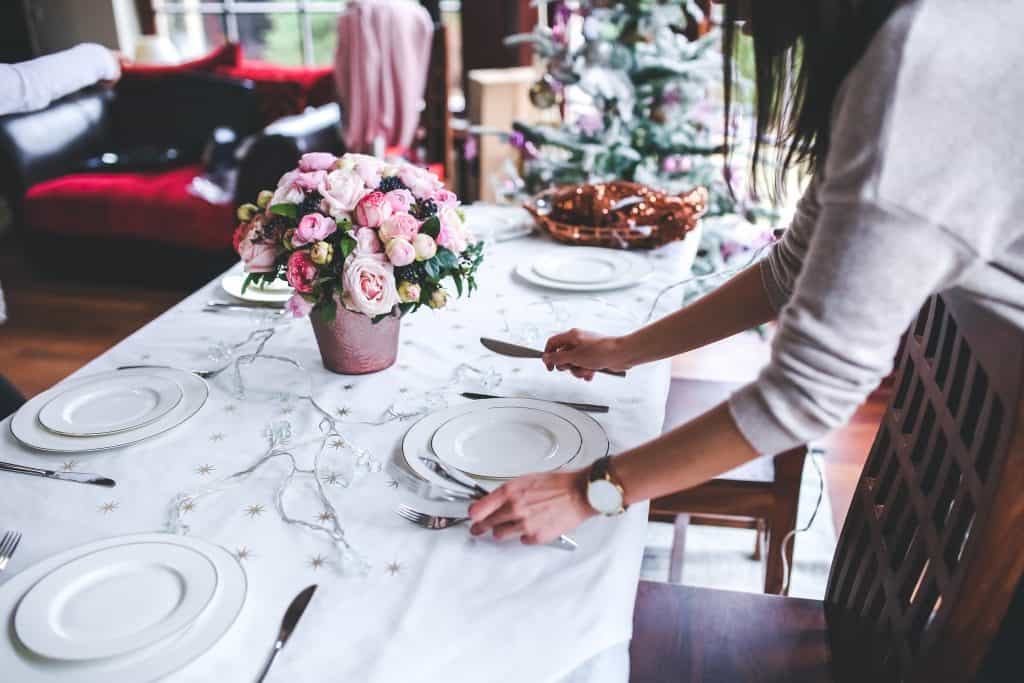Four Ways to be More Mindful During the Holidays…
Four Ways to be More Mindful During the Holidays
Have you noticed your relationship growing more distant? Is your partner spending time by themselves, working, or with friends at the expense of your connection? Are these patterns of behavior provoking worry and anxiety within you? If so, you may be dealing with someone who is emotionally withdrawn.
Emotional withdrawal is often painful. As humans, we all have needs around bonding and intimacy in our close relationships. You may be uncertain as to why your partner is pulling back in a way that allows these needs to go unmet. Understanding the causes, signs, and ways to reattune with an emotionally withdrawn partner are important steps in healing this dynamic.
What Causes Emotional Withdrawal in Relationships?
There is no singular cause for emotional withdrawal in relationships. Those who become emotionally withdrawn do so for different reasons, and there may be more than one factor at play. Experiencing disconnection in your partnership can be activating. However, practicing curiosity is likely to lead to more fulfilling conversations about the root causes of emotional withdrawal. A few items to consider include:
Insecure Attachment
Attachment styles begin to develop early in life based on our relationship with our primary caregivers. They are additionally influenced by the qualities of the adult relationships we engage in. A partner who is emotionally withdrawn may struggle with traits of an avoidant attachment style. In this attachment style, freedom is prioritized through the need for space and independence. Partners of someone with an avoidant attachment style might question their importance in the relationship.
Being in a relationship with someone who has an avoidant attachment style is more difficult if you have an anxious attachment style. Your need for reassurance and craving for connection can trigger your partner into further emotional withdrawal. Keep in mind that neither of these attachment styles are bad or wrong. They are adaptive responses to your past environments that are no longer serving you. Working with a couples therapist on understanding and shifting unhelpful attachment dynamics can help you build the partnership you desire.
Ongoing Relational Issues
Relationships require tough discussions. They bring up core wounds for both you and your partner. Healthy relating asks you to identify and work through the issues that are provoked by these wounds while also making room for excitement, fun, and play. That’s a tall order! It’s common to get stuck sometimes, which can lead to communication challenges and periods of feeling emotionally withdrawn.
Thinking that suppressing feelings of anger, sadness, or upset with one another is better than expressing them can continue cycles of disconnect. The full spectrum of emotion comes up in relationships, especially those that are long term. Learning how to pinpoint where you are struggling and be open about what those struggles bring up is a way of reestablishing closeness. Remember that this takes two – an emotionally withdrawn partner must also commit to growth in order to create sustainable change.
Mental Health Struggles
As we approach the peak of the holiday season, we can take a moment to be thankful for another year and time well spent with our loved ones. The holidays come with wonderful opportunities to slow down and enjoy moments with your family, but they often can come at the expense of your or your partner’s feelings.
If you have ever found yourself in an uncomfortable position during a family gathering, you are not alone. In fact, many of us experience changes within ourselves or our partners as we venture home for the holidays.
The Role of Family Dynamics During the Holidays
Each family has their own system of dynamics which creates a special culture that only internal members understand, but can be confusing or strange for an outsider, including a partner. As we visit our childhood homes, it is common to go back to old roles and modes of behavior, some of which are not suited to who we have become. Our partner might be surprised or even hurt by seeing us behaving in a different way.
It is as if we are a child again, and we think or feel in the same way that we did long ago. It can cause us to behave as if we have lost some of the resources or skills we now have gained as adults. If the childhood experience was difficult, home-visits during the holidays might stir up challenging emotions or memories.
All too often a combination of increased tension and changes in dynamics quickly turn into unappreciated comments that spiral into full blown arguments. The irony is that our partner feels like a safe person to us, so we take the feelings we can’t fully express to our family out on them. The frustration and anxiety surrounding a trip home can trigger a more painful and emotional responses, and the feeling of disconnect can lead to defensiveness and a feeling of misunderstanding.
The good news is, the easiest way to avoid issues with your partner this holiday season is to communicate about them! Let them know what hurts now, what hurt when you were a child, and how they can help support your through this evening.
Have a Pre-Holiday Discussion with Your Partner
Take time with your partner to think about the upcoming holiday visit. If you’re going to your family home, ask yourself:
“What roles do I usually take in my family?”
“What feelings might come up to me with my siblings, parents, kids, extended family?”
“What is the most frustrating aspect about being with my family?”
Once you have some answers to these questions, ask yourself:
“How can I reach out to my partner for support, and what they can do to be more on my side?”
Sit down with your partner, and discuss what bothered you about last year’s gathering, include a solution for the problem at hand. Four examples are:
1. “When I was a child, I never got to help decorate the Christmas tree, and I felt unimportant. Last year, I felt like an outsider when you decorated the tree without me. I want to be more included in family traditions.”
2. “When I go home for the holidays, I feel like everything I say or do is wrong. Sometimes, when my family talks over me, I feel like you think I am wrong, too. It would help me if you could support me agreeing with me or verbalizing that you think I am right. I would feel more confident to be who I have become.”
3. “It makes me feel excluded when people start opening gifts without me. This year, I would like it if everyone waited on me. I want to enjoy each of your opening your gifts, too.”
4. “It hurt my feelings when you snapped at me after you got in an argument with your brother. I want to support you when you feel irritated. It would help me if you could tell me what you need in these moments.”
Be More Mindful of Why You are Reacting
It is important to ask yourself why you are frustrated. Is it because of your partner or because of your family dynamics? Our family dynamics are responsible for shaping us, so there is a good chance the effect it has had on you and the stress it once caused are arising to the surface during the holidays.
Ask yourself four questions:
1. What am I feeling?
2. When did I start feeling this way? In what situation and with whom?
3. Why am I feeling this way – what is the meaning of that event / interaction that I have for me?
4. How can I reach out for support from my partner?
If you find yourself back in your childhood role, see your partner losing their ability to identify with their adult self, or feel sensitive emotions and tensions rising, try to become mindful of the situation that surrounds you and be considerate of your partner.
Many times we have the unconscious desire for our partner to know exactly how to support us without us having to ask for it. This is unrealistic. Instead, express your desires and expectations before holiday events. Take a moment in real time to tell them what you are needing.
It can be tremendously helpful to express more often to your partner when you begin to feel the tension of your childhood creeping back in. Take the time to really talk to your partner, and let them know how you are feeling – they can help you feel more secure, calm and capable.
Self Love and Self Care During the Holidays
Though these times are for family, friends and loved ones, it is important to always remember yourself. Being mindful, empathetic, and capable begins with self love. Offer yourself unlimited kindness and forgiveness as you embark on your trips home this season. This empathy will help create more warmth and security for yourself and your partner.
Happy Holidays, everyone
Founder of The Couples Center, Gal has a warm and practical approach that recognizes and honors the best in every person. Gal’s relationship with his wife is the source of inspiration for his commitment to helping couples create thriving relationships. Going through their relationship struggles made him realize how a committed relationship is the most important vehicle for one’s personal growth. Gal has a lifelong dedication to learning and growth and is trained in many different.

 Call Us Now
Call Us Now




